Living Life to the Fullest: A Decade with Lynch Syndrome
By Jordan Villanueva • March 01, 2021
Mike Dampf loves the outdoors. He’s an avid hunter, he kayaks through the summer, and he spends the winter dreaming of foraging for spring mushrooms. As a Wildlife Supervisor for the Wisconsin Department of Natural Resources, he gets to care for the land in several counties around his home. When he isn’t working, he loves hanging out with his kids, even when that involves shuttling them around. Mike and his wife Heather have been on a mission to get their kids to all fifty states before they graduate high school. They were on track to achieve that goal until the COVID-19 pandemic threw a wrench into their plans.
Also, Mike hasn’t had a solid bowel movement in ten years.
“Besides the physical scars, I get to deal with the repercussions of not having a colon,” Mike says. “Sometimes I’ll take fifteen minutes in a gas station bathroom, and I don’t want people being impatient with me.”
Mike has a genetic condition called Lynch syndrome. He learned he had the condition after he was diagnosed with colon cancer at age 37. The Lynch syndrome diagnosis not only meant that Mike had an extremely high risk of developing several different cancers, but it also meant that his colon cancer could come back. Mike decided to be proactive and negate that risk by opting to have his entire colon removed.
Despite his own challenges, Mike believes that Lynch syndrome doesn’t have to determine destiny. He’s spent the past decade having tough conversations with family members and others who might be carrying this same condition, helping them understand their risks. He and Heather are staunch advocates for early screening (colon cancer can be highly preventable with regular screenings) and protection for pre-existing conditions. Both of their kids understand their own health risks, and when they turn 18, they will have the opportunity to be tested for Lynch syndrome.
“I always stress how important it is to find out if you have it,” Mike says. “It isn’t a death sentence. If you have those risk factors, you can take precautions and maybe never even get cancer. You can protect yourself and manage your risk.”
“I’m not just alive,” he adds. “I’m living life to the fullest.”
Colon Cancer at 37: “I don’t understand how you got this.”
“It was springtime, during prescribed burn season,” Mike says. “I was working long hours while also getting ready for my annual fitness test with the military. My kids were around five years old at the time, and they wanted to run with me in the mornings. We would do a mile and a half, but since I was dragging five-year-olds along, I didn’t really know that I was much more out of shape than I was used to.”
Mike joined the Air National Guard in the early 90s. He continued training with the military as he and Heather moved from their hometowns in Illinois to Seattle, Washington, and eventually to Dodgeville, Wisconsin. Mike started working for the Wisconsin DNR in 2003, and their kids, Cal and Zoey, were born in 2004 and 2005, respectively.
By 2010, Mike had been in the military for almost twenty years. He’d never had trouble with the fitness test before. His 1.5-mile run usually took around twelve minutes, but that year it took him more than fifteen.
“I was completely gassed,” Mike says. “It was hard to even stand up straight when I was done.”
As he thought about his recent health, Mike realized he’d been a lot more tired than usual. Caffeine wasn’t helping. He was getting winded going up stairs or carrying heavy loads. He and his doctor talked through his symptoms and ran some tests to find the cause. They discovered
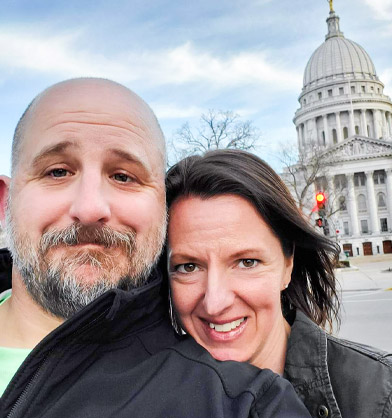
that Mike was anemic, which explained the weakness and fatigue he was experiencing. A stool analysis revealed blood in his stool from internal bleeding. A follow-up colonoscopy revealed a large tumor encircling the right side of his colon.
Mike had colon cancer. He was 37 years old.
“My surgeon initially said, ‘We should consider removing your whole colon. You’re young. I don’t understand how you got this. Let’s consider taking the whole thing.’ But I wasn’t comfortable with that, so we just did the right hemicolectomy.”
Mike had a third of his colon removed in July 2010. Following surgery, his doctors convinced him to pursue genetic counseling. They agreed that he seemed too young to develop colon cancer, so they wondered if other factors were involved. It took some time to get the results of his tests, but in August, Mike learned that he carried a deletion in the MSH2 gene. Mike had Lynch syndrome.
Lynch syndrome is an inherited condition associated with high risk of developing colon cancer, as well as many others including endometrial, skin, and brain cancers. It’s caused by autosomal mutations to the major mismatch repair genes, which result in a defective mismatch repair system – the group of proteins responsible for fixing insertion and deletion mistakes during DNA replication. When the mismatch repair system is dysfunctional, cells can accumulate errors and mutations as they divide. This can eventually lead to unchecked growth and tumorigenesis. Individuals with Lynch syndrome are often diagnosed with cancer at a younger age, and many develop multiple primary cancers throughout their lifetime.
“Processing cancer is different than processing the genetic mutation,” Mike says. “With cancer, you gotta cry and hug it out for a little while. Then you have to get smart – real fast, because things happen quickly. You need to face mortality, get right with your god, pick your battles and win.”
“Lynch is different. Education is key. You need to get as smart as you can. Good doctors will understand it, but you also need to do your own research. You can’t just sit back and wait.”
In December 2011, at the advice of his doctors, Mike had the rest of his colon removed to proactively prevent him from developing another colon cancer. While Mike is still at risk for other Lynch-associated cancers, he can safely cross one off of his list.
“The way I think of it is that you can’t stub your toe if you don’t have a toe,” Mike says.
“I’m not just alive, I’m living life to the fullest.”
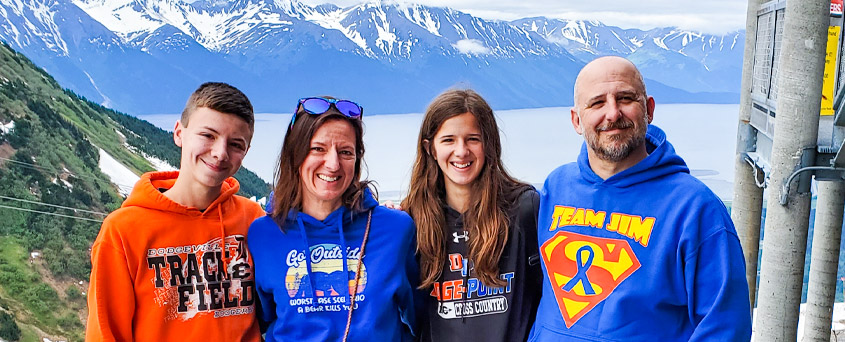
Lynch Syndrome: A Family Affair
Despite his increased cancer risks, Mike says Lynch syndrome doesn’t feel like a “death sentence,” as he puts it. If anything, he believes his diagnosis has given him more insight into his risks, as well as the power to mitigate them. He follows all the best practices for annual screenings, though he admits that he sometimes puts off making appointments for cystoscopy (bladder scope), his least favorite exam.
“Stick another camera in me, have me put more fluids in a container. Let’s do it. If the gold standard says to do it, and I have good insurance, let’s just do it.”
Since he was diagnosed with Lynch syndrome, Mike has learned as much as possible about the condition so that when he visits doctors, he is prepared to advocate for himself and engage in productive conversations. He also notes that over the past decade, even his own doctors have learned a lot about Lynch syndrome, improving their care for other people who have since been diagnosed.
“When I was first going in and doing the follow-up stuff, they’re like ‘yeah, you’re special, so we’ll do that just because you’re Mike,’” he says. “Over the years, as I’ve continued, my surgeon realized it’s not as rare as he thought it was. I was the first here, but since then he’s met other people who have been able to get down the right path.”
Mike’s Lynch syndrome affects more than his screening regimen, though. As a genetic condition, Lynch syndrome is inherited from a parent. The autosomal dominant inheritance pattern means that a child with one Lynch-positive parent has a 50/50 chance of inheriting it as well. An analysis of Mike’s family history indicated that he most likely inherited it from his mother. That means that many of his relatives are also at risk of having Lynch syndrome – his siblings, but also his mother’s siblings and their descendants.
Unfortunately, Mike’s mother was never tested for Lynch syndrome. She was treated for cervical cancer in the mid-2000s and later died from pancreatic cancer, which is a Lynch-associated cancer. Despite her health record and the evidence gathered by Mike’s genetic counselor, Mike’s mother refused to accept that he could’ve inherited Lynch syndrome from her.
“She had to know,” Mike says. “The science was clear; the evidence was undeniable. Rarely will facts overrule emotion in our brains, though.”
Following the example from Mike’s mother, many in Mike’s extended family have also chosen not to be tested. Of the three that have been tested, two were positive for Lynch syndrome.
“If I can make them feel like they’re not in it alone, that seems like a lot.”
“They don’t even know what ticking time bombs might be inside them. I stress how important it is to find out if you have it. Screening is what’s going to save your life.”
Mike believes that a culture of stigma kept his mom from being open about her health. She was reluctant to talk about her experiences with gynecological cancer, and he thinks that the possibility that her genes were responsible for his colon cancer was too much for her. While he isn’t a fan of her decisions, he understands how she felt when he thinks about his own kids, Cal and Zoey.
“As you start to process and you’re building your linkage back up your family tree, you realize your family tree is growing in the other direction as well. As a parent that may pass genetic disease to my children, I completely understand her emotions. I don’t want to be the one to give it to my kids. My worst fear is my kids getting it, and the day I fear the most is when my kids get tested,” Mike says. “I want them to know if they have it, but if they do, that’s going to feel horrible.”
Mike and Heather have always been open with their kids when it comes to their health. Cal and Zoey were both under six years old when Mike was diagnosed with Lynch syndrome. They knew their dad was sick, and that he was going to have
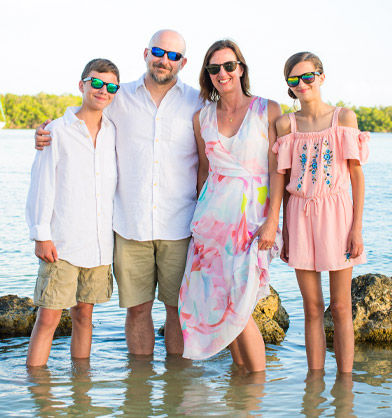
surgery. They learned the basics of inheritance – where they got various physical characteristics from, but also that they might’ve received a bad copy of a gene from their dad. Mike and Heather decided that once the kids turned 18, they would be free to make their own decisions about testing. Cal has always been eager to get tested, from the moment he first learned about Lynch syndrome at age 6. At age 16, he will soon be able to get answers for himself. Zoey, who just turned 15, is less eager, but she also plans to get tested when she’s old enough.
“It’s a line of protection,” Heather says. “As a mom, I can know my kids are going to be okay. They’re going to get tested because they want to know. And I know our kids – they’ll be proactive. They’ll get their screenings.”
“They’re great kids,” she adds. “We’re very lucky.”
Ten Years Later: Advocacy, Awareness, Support
“People will say things like ‘I totally forgot that Mike had cancer,’” Heather says. “The fact that he has no colon doesn’t define who he is.”
Ten years after Mike had his colon removed, life has mostly moved on for the Dampf family. Mike still gets frequent scans and tests. And he’s still having difficult conversations with other family members, but Mike says they’ve slowed down.
“I’m not going to ruin every time we get together,” Mike says. “I’m going to stop getting invited over. But I don’t shy away from the conversation, either. We still have those talks.”
Aside from Mike’s health challenges and their ongoing outreach with family members, Mike and Heather have used their experiences to help empower other people to be proactive with their health.
Shortly after Mike’s diagnosis, Heather began looking online for information about colon cancer at a young age. She eventually found several online communities of people whose stories sounded a lot like her family’s.
“Nobody I knew had a husband as young as mine who had cancer,” Heather says. “Through these communities and our advocacy work, we’ve befriended people who we’re still incredibly close with.”
Through these online advocacy groups, Heather has had several opportunities to travel to Washington, D.C. to meet with legislators about early screening and protections for pre-existing conditions. She has shared her family’s story with Wisconsin Representative Mark Pocan and Wisconsin Senator Tammy Baldwin. Heather and her group went into these meetings with talking points about insurance coverage and access to early screening, but she says the politicians almost always asked to hear personal stories instead.
“I think it’s important to be able to share that,” Heather says. “I can say ‘This is something that’s really important, and it personally impacts me.’ And they seemed interested in serving the people.”
Heather was active in several advocacy groups for years, even helping to organize a 5K run in Madison, WI to benefit a colon cancer awareness group. She and Mike went to Lynch syndrome events and even attended a talk with Dr. Henry Lynch, for whom the condition was named, at an event at the Mayo Clinic.
Eventually, Heather grew tired of the relentless fundraising that often comes with non-profit work and decided to step back from the organizations. However, she and Mike are still doing their best to support people who have Lynch syndrome or are diagnosed with colon cancer at an early age.
“Just like everything else in life, you evolve and you grow out of things,” Heather says. “Life goes on. Every year he gets his scans and you just start to move on.”

Lynch syndrome introduced a paradigm shift into the Dampf family’s lives, prompting Mike to opt for prophylactic surgery, encouraging family members to face tough realities, and inspiring Heather to speak out. But in some ways, nothing has changed at all. Mike has retired from the military, and he recently starred in some educational videos on the Wisconsin DNR social media. He shot a yearling buck early in last year’s deer season. In the evening, he relaxes with a brandy old-fashioned. The kids are eating pizza in a different room while Mike and Heather join a video call to recount their experiences with cancer and Lynch syndrome over past decade. As Mike says, he isn’t just alive. He’s living life to the fullest.
“From the outside, you can look at me and I look healthy,” Mike says. “I’m fully recovered. If a friend of a friend ends up with cancer, people who know I had it ask me to talk to them. If I can make them feel like they’re not in it alone, that seems like a lot.”
Colorectal Cancer Awareness Month
We support cancer research and awareness because the global burden is unacceptable. Learn more about how education and early screening can help us fight the third most common cancer worldwide.
Additional Resources

Lynch Syndrome Detection: The Importance of Determining Status
Learn more about Lynch syndrome and how genetic testing can help patients and healthcare professionals make more informed decisions.
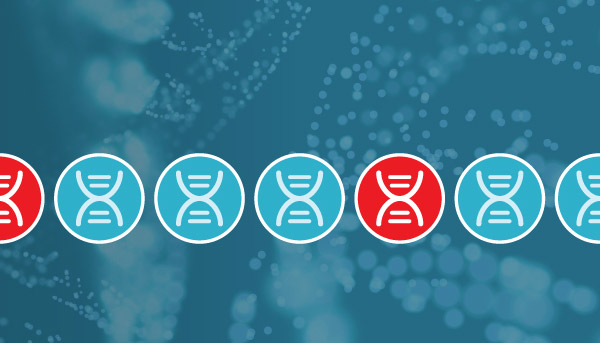
Altering Genetic Destiny: The Life- Saving Power of Lynch Syndrome Detection
Explore the genetics of Lynch syndrome and read about screening methods to determine an individual’s likelihood of having it.
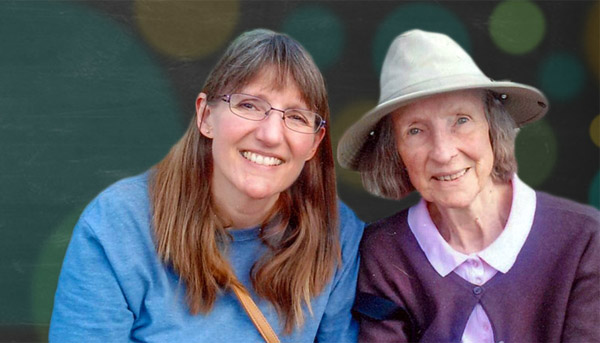
Life with Lynch Syndrome
Read the story of Carrie Ketcham, who learned she had Lynch syndrome after being diagnosed with colorectal cancer at age 49.